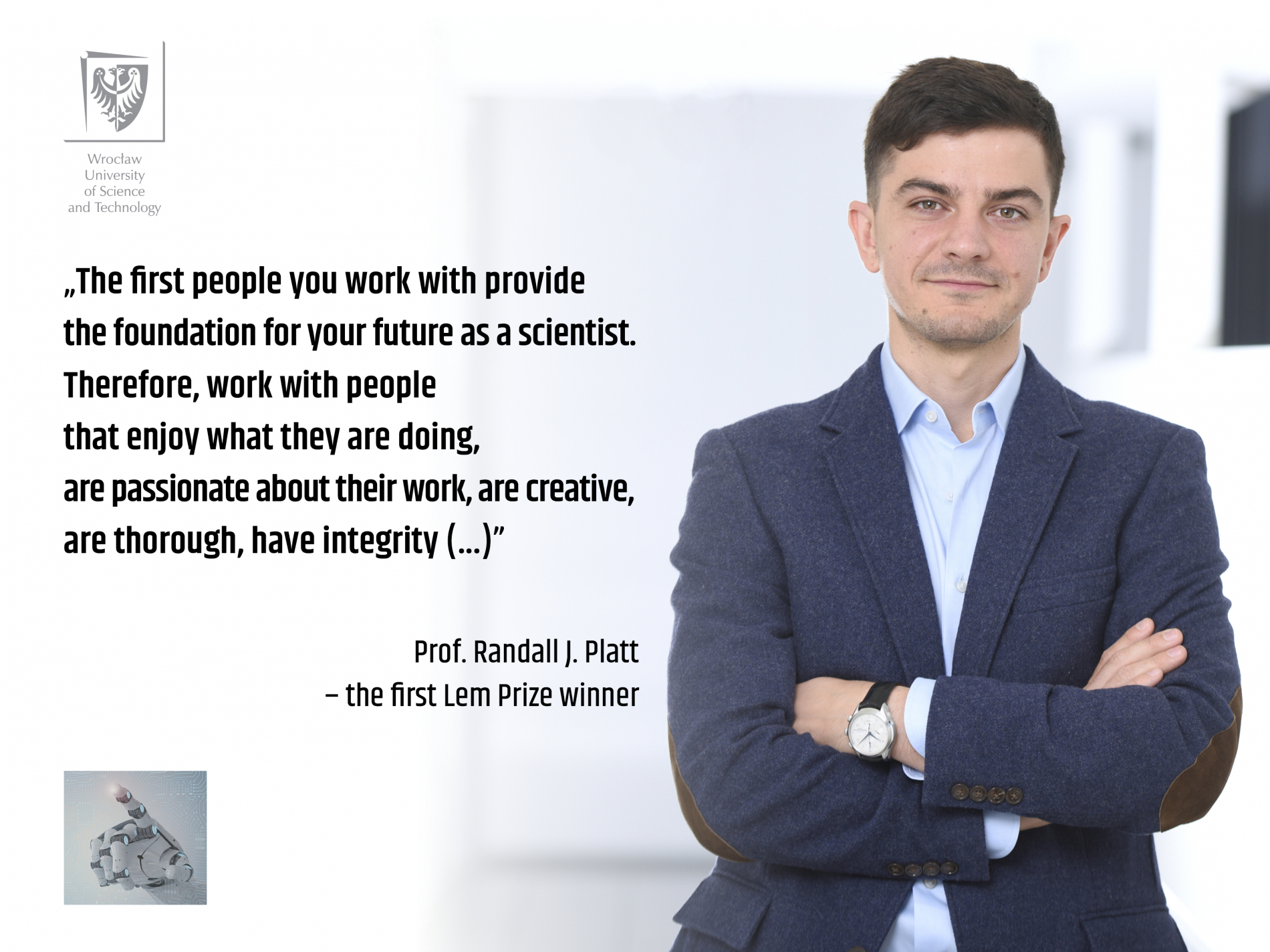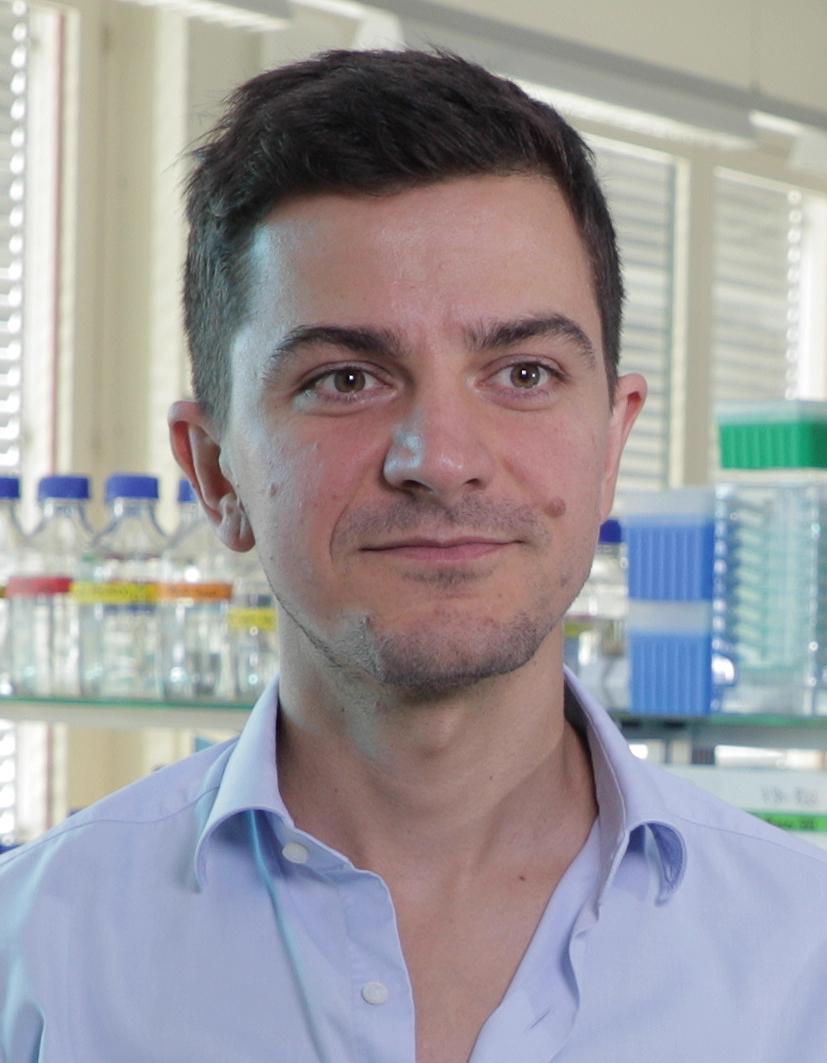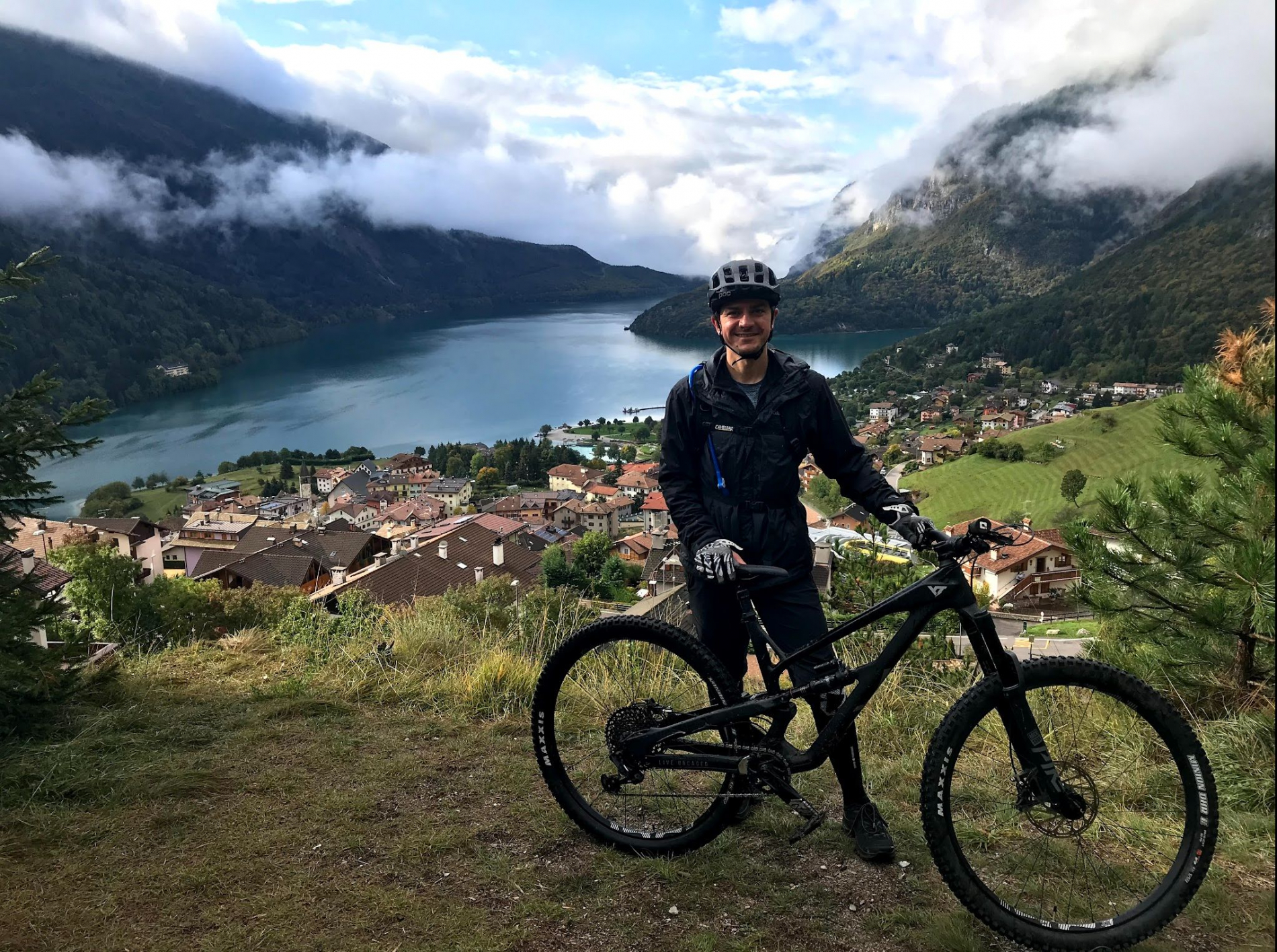YOUR BROWSER IS OUT-OF-DATE.
We have detected that you are using an outdated browser. Our service may not work properly for you. We recommend upgrading or switching to another browser.
Date: 15.11.2021 Category: awards, general news
Where today's science is heading, how to build a good research team, and how inspiring Polish scientists can be are the issues discussed by Prof. Randall J. Platt, the first winner of the Stanisław Lem European Research Prize.

Michal Ciepielski: Are you familiar with the literary output of Stanisław Lem?
Prof. Randall J. Platt: I am generally familiar with the work of Stanisław Lem and several of his books have been on my reading list for longer than I would like to admit, including Summa Technologiae and Solaris.
Perhaps you have found some of his works particularly memorable, or useful in your life or academic career?
I know his ideas permeate much of science fiction (and science fact), including nanotechnology, artificial intelligence, virtual reality, among many others. I admire Stanisław Lem and his contemporaries for their ability to envision the future of science and technology beyond what is even remotely feasible. This work does inspire me.
Can you tell us about the research you are involved in?
I strongly believe that new technologies are the main drivers of progress in the biomedical sciences. My research therefore focuses on creating technologies that can side-step traditional bottlenecks in biomedical research and enable fundamentally new types of experiments, diagnostics, and therapeutics. My lab’s current approach to this is to harness the biomedical potential of the treasure trove of CRISPR proteins for creating new technologies and facilitating their translation towards the clinic. We first conceive of new technologies; design, test, and refine the tools within cells in the laboratory; and then ultimately demonstrate impact and value within translational animal models.
Your research deals with genetic issues, among other things. Can genetics solve the biggest problems of today’s world, such as cancer or autism?
I believe genetics is a powerful science that helps us understand the blueprint of life. It forms the basis for understanding how life is encoded and preserved as well as evolves. However, genetics alone cannot solve the biggest problems of today without being integrated within a much larger multidisciplinary effort. To solve today’s biggest problems we need people from all walks of life: geneticists, molecular biologists, chemists, engineers, doctors, entrepreneurs, ethicists, lawyers, politicians, and the general public more broadly. Without a holistic plan and widespread adoption and public support, the full potential of science and innovation cannot be realized.
Where do you think the science of today is heading?
We are in the midst of several exciting scientific revolutions, including those in artificial intelligence/machine learning, quantum computing, genetics, and gene editing. I also believe we are on the cusp of a revolution in the broadly defined field of synthetic biology, where our ability to program gene circuits and cells is reaching a maturity that will lead to truly exciting breakthroughs in cell and gene therapy, diagnostics, material science/living materials, and DNA data storage. Advances in these and other areas will clearly have a major impact on the future of civilization: the world’s data being stored in DNA, homes and buildings made of living and self-repairing materials, better therapies and diagnostics making people live longer and the world increasingly or more likely abruptly shifting their attention towards the major crisis facing the planet: global climate change.
You have studied and worked at the best universities in the world, so you have extensive experience and you have seen how they work. What do you think is common to these universities?
I have been extremely fortunate to work with numerous incredible people at several excellent institutions, including University of Utah, Imperial College London, MIT, Harvard, Broad Institute, and ETH Zurich. Each institution has its own unique culture that brings along its own advantages and disadvantages. Furthermore, each department, institute, and cohort is its own microcosm. Your question is thus a complex one. Nonetheless, two common themes permeating all of them that I recognized within the microcosm I was part of were: the collective feeling of being able to overcome challenges and achieve anything as well as a strong focus on excellence and impactful innovation.
There are several common values that I believe all universities should strive for: integrity, diversity, equity, equality, inclusion, empowerment, curiosity, intellectual freedom, a sense of community, and the full support and freedom to fail in earnest efforts in the pursuit of making a positive impact on science and society.
 What do you consider to be your greatest achievement to date?
What do you consider to be your greatest achievement to date?
Without a doubt my greatest achievement was raising two incredible children that are turning into remarkable individuals (and budding scientists!). In terms of professional achievements, I feel that my greatest achievement was building a multidisciplinary research team comprised of incredibly smart, curious, and fearless scientists who – in addition to being great human beings – are poised to make important contributions to biomedicine.
What are your professional plans for the nearest and more distant future?
My professional ambitions for the future are to continue to pursue my passion of leading an outstanding research team in their quest towards developing innovative molecular technologies that fill fundamental gaps in biomedicine and further develop the sentinel cell technology such that they can be utilized in human patients and improve their health and wellbeing.
Have you been to Poland before or worked with Polish scientists?
While I have never been to Poland, I have had several Polish friends and colleagues. As an undergraduate at the University of Utah one of my mentors was the Polish scientist Grzegorz Bulaj and he recruited several excellent Polish researchers into the group. Together we characterized cone snail venom peptides and explored their therapeutic potential along with others in the group of Baldomero Olivera (Platt, Journal of Biological Chemistry, 2012; Platt, Toxicon, 2014). This community of Polish and other international scientists played an important role in shaping my future as an academic researcher. Their curiosity, sense of community, and generally positive and fun outlook towards life and science was a strong motivator for me.
Further into the future, while at MIT in the lab of Feng Zhang I worked alongside the Polish scientist Łukasz Święch who also became a good friend. Fortunately for me Łukasz was a connoisseur of all Polish things as well as an excellent cook (he was an excellent scientist too). Here is where my love of pierogi and borscht soup emerged. I am therefore not only thrilled and honored to receive the Lem Prize for its own sake, but I am also extremely excited to visit Poland and eat as much pierogi as I can.
How do you like spending your free time?
As a group leader and father of two free time is hard to come by, however, I am also a strong believer in a balanced life. I believe that spending time doing a diversity of things I enjoy helps me and those who depend on me all around – being a better father, husband, and group leader for example. My hobbies usually take me to a new part of the world or into the mountains, where I enjoy travelling, eating, hiking, mountain biking, skiing, and snowboarding. I grew up in Salt Lake City, Utah which is a mecca for outdoor activities, and this is where most of my passions originated. My attraction to travel and the outdoors, along with scientific excellence, were major drivers for my move to Switzerland. Having the Alps in your backdoor gives you an outlet for the bad days and a place to celebrate on the good days.

If you were to give one piece of advice to young scientists starting their professional careers, what would it be?
Pay just as much attention, if not more, to who you will be working with as what science you will be doing. You can always change projects and scientific fields – and some of the most successful scientists do – but the first people you work with provide the foundation for your future as a scientist. Therefore, work with people that enjoy what they are doing, are passionate about their work, are creative, are thorough, have integrity, are so smart that it intimidates you, and take time to mentor.
Our site uses cookies. By continuing to browse the site you agree to our use of cookies in accordance with current browser settings. You can change at any time.